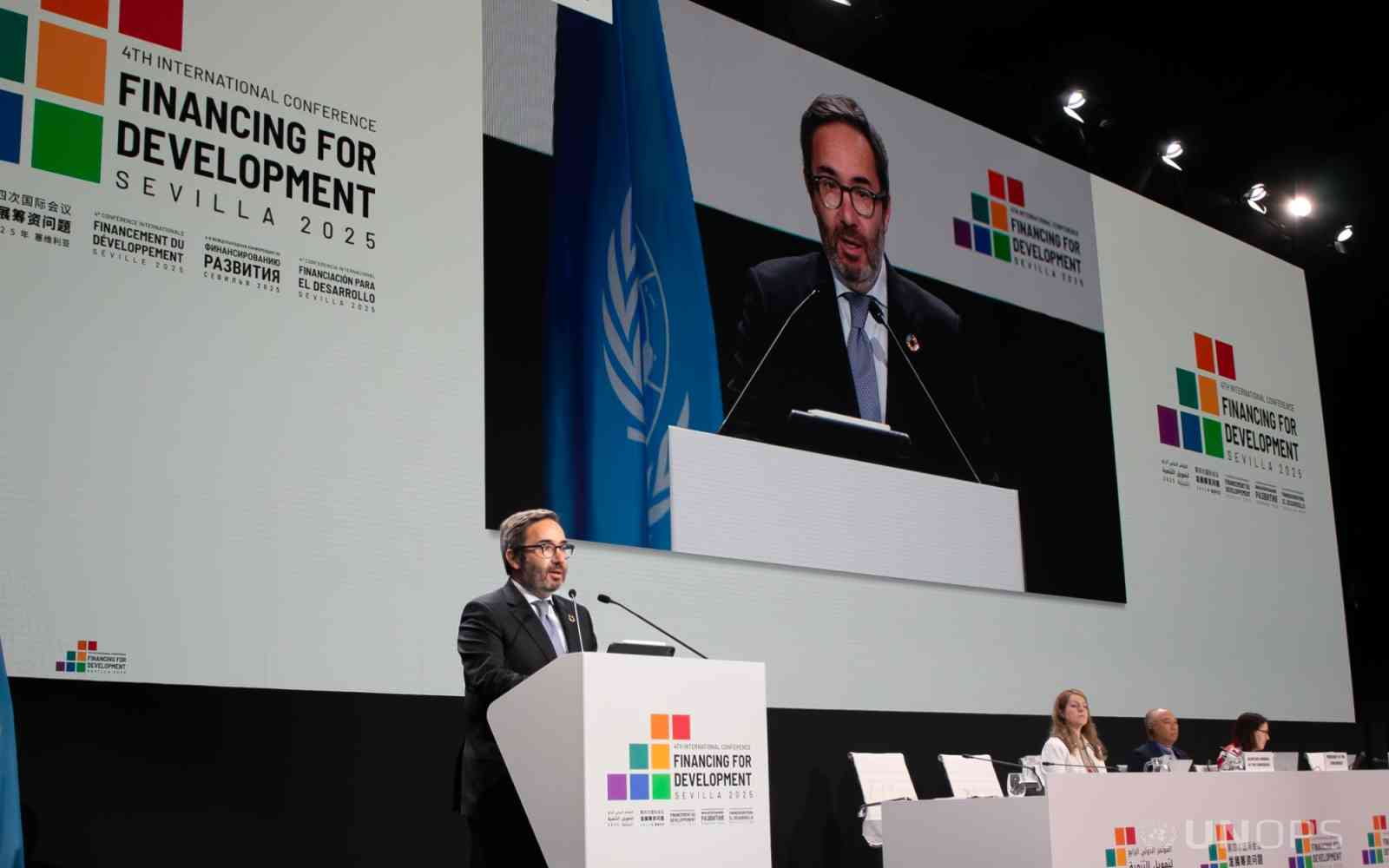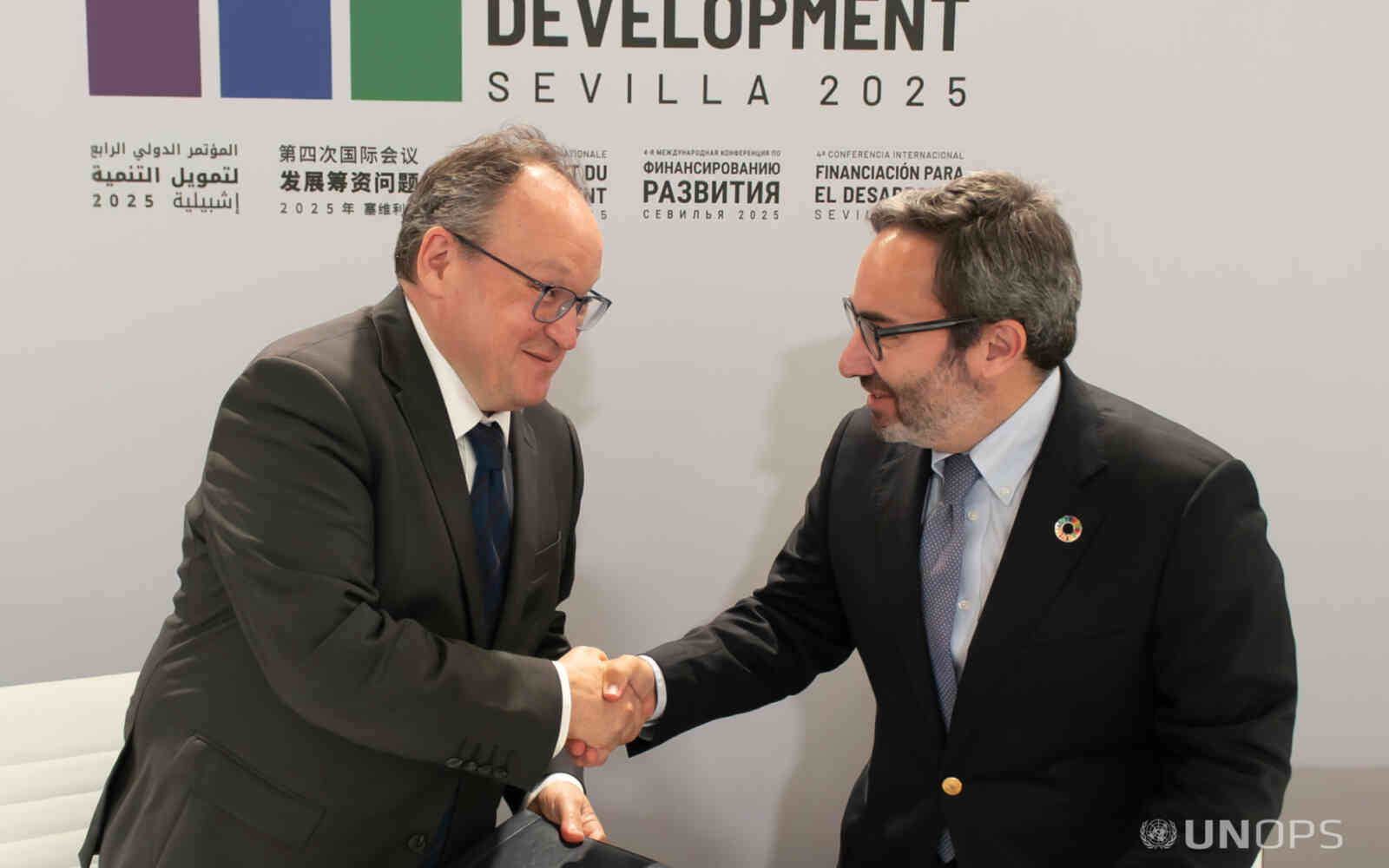The United Nations Office for Project Services (UNOPS)
Upholding the multilateral trading system, and harnessing the potential of science, technology and innovation
Remarks by Jorge Moreira da Silva, UN Under-Secretary-General and UNOPS Executive Director, at FfD4 Multi-stakeholder Round Table 4: 'Upholding the multilateral trading system, and harnessing the potential of science, technology and innovation,' 4th International Conference on Financing for Development, 2 July 2025.
[Check against delivery]
Distinguished co-chairs, Excellencies, delegates,
It is an honour to join you today to moderate this session.
Ten years ago, in Addis Ababa, countries recognized that public finance alone - through ODA and domestic resource mobilization - would not be sufficient. They called for mobilization of public and private finance to meet the trillions needed to achieve the SDGs and the climate goals. And crucially, they called for improved global trade.
Since then, despite some progress, critical bottlenecks have held us back.
Insufficient capacity to implement at national and local levels;
Finance flows misaligned from sustainable development goals;
Finance flowing often to the “easiest” contexts, not where is most needed —especially in LDCs and conflict and fragile contexts; and
A new development finance landscape has emerged, but the development finance architecture has not caught up. Our ways of doing things are still outdated and fragmented.
Both Addis and now Seville rightly emphasize that international trade is an engine for sustainable development.
Yet the multilateral trading system is facing significant headwinds.
We're seeing a worldwide increase in trade restrictions, including tariffs that are inconsistent with WTO agreements.
This is a concerning trend - made worse by rising trade tensions and a lack of progress in multilateral negotiations.
Developing countries are struggling to integrate into regional and global value chains.
LDCs, LLDCs, SIDS and middle-income countries can miss out - due to restricted productive capacities and inadequate trade infrastructure.
We need urgent and concrete steps to address this.
We need scaled up - and more equitable - financing.
The Seville document is clear in its vision.
It reaffirms the centrality of a rules-based, inclusive multilateral trading system.
And it calls for bold steps to close digital divides and build on scientific and technological advances.
To improve trade capacities,
To better integrate countries into regional and global value chains
To help countries get more out of their commodities and critical minerals, and move up value chains.
And to promote digital solutions to bridge gaps. (But let’s not forget that, as we speak in this AI era, ⅓ of the population is still offline)
Advancing these measures is a collective responsibility. And we will do it also within UNOPS mandate on infrastructure, procurement and project management.
As we look ahead, let us hold ourselves accountable to the spirit of Sevilla. To deliver with renewed commitment, and deliberate, coordinated action. To put developing countries at the centre, and to measure our success by tangible results for communities.
Thank you.










